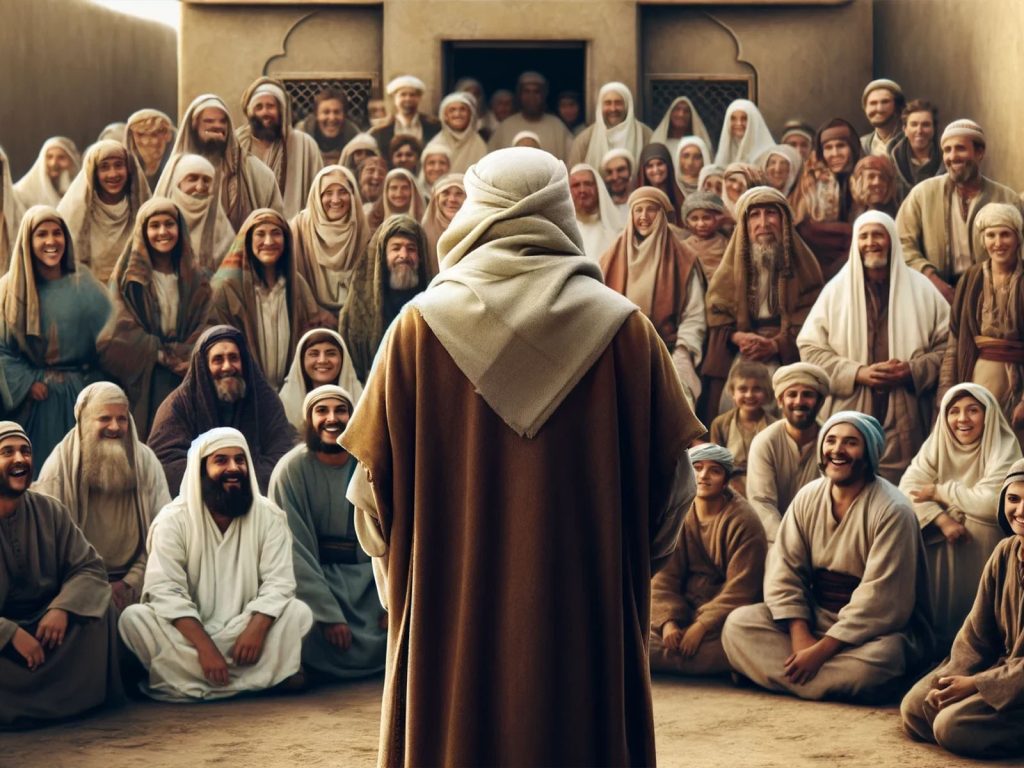The rapid spread of Islam is one of the significant historical issues that is often discussed in terms of its causes. Islam, just like Christianity, spread beyond its birthplace and opened up new horizons. Islam emerged in the Arabian Peninsula, and today we see that it has followers in Asia, Africa, Europe, America, and among various races around the world. However, Islam has a unique characteristic regarding its spread, which is its speed. Islam advanced exceptionally fast, both in the Arabian Peninsula and outside of it, whether in Asia, Africa, or elsewhere…
Lamartine, the famous French poet, says: “If we consider three things, no one can match the Prophet of Islam. One is the lack of material means, the second is the speed of progress or the factor of time, and the third is the greatness of the goal.” A man emerges and presents a call, while having no power or strength, and even his closest relatives and family rise up against him. He emerges alone and has no allies. Yet his call begins with him and gradually, others come to believe in him and join him, despite all the hardships and difficulties… If we consider the importance of his goal, despite the lack of material means, and the speed with which he achieved that goal, the Prophet of Islam, according to Lamartine, is unparalleled in the world…
But what is the secret behind this influence and rapid spread? The truth is that among all the factors, the primary reason for the spread and growth of Islam everywhere is the Quran and its content. However, aside from the Quran, the personality of the Prophet Muhammad (peace be upon him), his character, behavior, conduct, and leadership, are the second great factors in the spread of Islam. Even after the death of the Prophet (peace be upon him), the history of his life and conduct itself remained a significant factor in the advancement of Islam.
But what was the Prophet Muhammad (peace be upon him) like? The Prophet was kind and extremely patient in his personal dealings, but when it came to social duties and responsibilities, he exhibited the utmost firmness. For example:
The time was when the Prophet (peace be upon him) was in the position of leading the Muslim community in Medina. The Prophet was about to lead the congregational prayer when a man came up to him in the street, blocking his way, and claimed that he owed him money and demanded payment right then. The Prophet said: “First, you do not owe me anything, and you are making an unjust claim. Secondly, I do not have money with me right now. Please allow me to go.” But the man would not let the Prophet pass. No matter how much the Prophet tried to reason with him, the man grew more violent. Eventually, the man grabbed the Prophet’s cloak and pulled it around his neck, causing the Prophet’s neck to turn red. The Muslims, seeing the Prophet delayed, rushed to him and saw that the man was a Jew. They wanted to confront him harshly, but the Prophet (peace be upon him) said: “Do not bother with him. I know how to deal with my companion.” He showed such forbearance that the man immediately declared: “I testify that there is no god but Allah, and I testify that you are the Messenger of Allah.” He said: “With such power that you have, you show so much patience?! This patience is not that of an ordinary person, but of the Prophet himself…”
On the other hand, a noble person from the Quraysh tribe [1] had committed theft. When the matter was proven and the individual admitted to his crime, punishment was to be carried out. This is when intercessions and pleas began. One said: “O Messenger of Allah! If possible, please forgive him. This person is the son of such and such, who is very respected, and punishing him would tarnish the reputation of a noble family.” His father came, his brother came, and so on. However, despite all their pleas, the Prophet (peace be upon him) replied: “It is impossible! Are you asking me to suspend the law of Islam? If this person were someone without a family connection or noble lineage, all of you would say he is a thief and must be punished.” Therefore, he rejected all intercessions and pleas.
Thus, the Prophet Muhammad (peace be upon him) would never show leniency in fundamental matters, but in personal matters, he was exceptionally kind and forgiving. This kindness, along with his patience, was one of the most important factors in the rapid spread of Islam…
(Taken from the book: “The Prophetic Biography,” written by Martyr Morteza Motahari (may Allah sanctify his soul))
Footnote:
[1] The Quraysh was one of the most important and prominent tribes of Mecca, which held a high position among the people both in the pre-Islamic period and afterwards. The Quraysh tribe had many sub-tribes, and the Prophet Muhammad (peace be upon him) himself belonged to one of them, namely the “Banu Hashim.”



